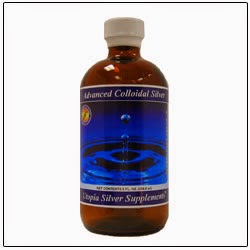 |
| Alternative medicine |
Around the world herbs are often used to treat diseases. In China, for example, there is a long history of the use of herbs for treatment, much of which has been highly touted over the centuries. However, not everyone agrees that unbridled use of herbs might be a good thing.
A forensic pathologist has sounded a worldwide alert about the dangers of herbal medicines, saying "these substances may cause serious illnesses."
What Professor Roger Byard of the University of Adelaide writes in the Journal of Forensic Sciences is in reference to the false assumptions many people have about herbal medicines. “There’s a false perception that herbal remedies are safer than manufactured medicines, when in fact many contain potentially lethal concentrations of arsenic, mercury and lead,” Professor Byard says.
“These substances may cause serious illnesses, exacerbate pre-existing health problems or result in death, particularly if taken in excess or injected rather than ingested.”
Professor Byard declares there can also be fatal consequences when some herbal medicines interact with prescription drugs. “As access to such products is largely unrestricted and many people do not tell their doctor they are taking herbal medicines for fear of ridicule, their contribution to death may not be fully appreciated during a standard autopsy.”
After examining 251 Asian herbal products that were found in stores in the United States, analysts found a significant level of harmful ingredients that included arsenic in 36 of them, mercury in 35 and lead in 24 of the products.
“Herbal medicines are frequently mixed with standard drugs, presumably to make them more effective. This can also have devastating results,” Professor Byard adds.
Not only can herbal medicines have a deleterious effect on individuals, the interaction of herbal medicines and traditional therapies can have very serious consequences. For example, St. Johns Wort can reduce the effects of warfarin and can also cause intermenstrual bleeding in those women who take oral contraceptive medications.
Around 30 percent of people in the United States use herbal medicines as do a high number of people in Canada and the United Kingdom. This is why medical researchers have underlined the significance of a worldwide warning on the use of herbal medicines.
Despite warnings such as these, articles, books and websites continue to proliferate and are devoted to recommending herbal medicines. The emphasis is on the curative value of these remedies, while few mention the problems taking them. Websites that offer information about herbals, recommend and sell them, often do not provide warnings about them.
There are risks involved when taking herbs for medical purposes, according to new medical research. This research underlines what patients need to do before taking herbal medicines and that's to check with a doctor, especially because some herbal medicines may not jhelp a medical condition but actually create harm instead.
No comments:
Post a Comment
Say something constructive. Negative remarks and name-calling are not allowed.